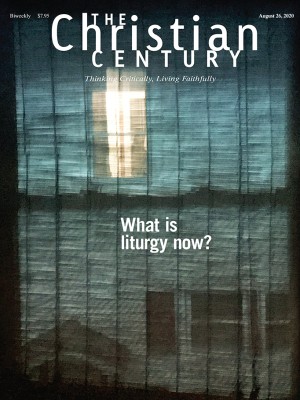A desire to return home
Aharon Appelfeld’s novel of wartime survival among Jewish partisans in Nazi Europe
Israeli author Aharon Appelfeld’s haunting novel, written in 2012 but translated into English just this year, is the perfect read for this time of pandemic and social distancing. Its characters are wrenched from their normal lives, isolated from their society, unable to see their loved ones, and in danger of sudden death by forces over which they have no control. To the Edge of Sorrow is filled with yearning and memory, dislocation and loss—and in spite of it all, hope. It’s threaded throughout with the promise of home.
Appelfeld, who died in 2018, has been called one of Israel’s leading chroniclers of the Holocaust. Born in 1932 in Bukovina (now Ukraine), he was deported to a forced labor camp at age nine. He escaped and lived for several years in the forest, surviving by his wits and the kindness of strangers, before becoming a cook for the Soviet army. After the war, Appelfeld went to Palestine and learned Hebrew—the language in which he would eventually write.
Read our latest issue or browse back issues.
Appelfeld’s prose is direct and spare, and To the Edge of Sorrow reads like a diary with short episodic chapters. Its narrator, Edmund, is a 17-year-old boy, an only child of doting middle-class parents who at a critical moment order him to leave them. We meet him hiding in the forest and mountains of Ruthenia (between Hungary and Ukraine), pining to return to his home. Through Edmund’s eyes we meet members of the ragtag band of Jewish partisans who have rescued him and whose physical survival depends on their ability to blend into the countryside and hide from German soldiers.
Edmund and his motley companions train as soldiers, go on raids to local farm homes and villages, plan hostile actions against the Nazis, and rescue other Jews. That part of the tale is reminiscent of the true story of the Bielski brothers, leaders of a group of Jewish partisans in the Polish countryside who rescued Jews and fought Nazi soldiers during World War II. Defiance, an action-packed Hollywood movie based on the Bielski brothers’ story, was released late in 2008.
Unlike the film, which focuses on action, murder, and revenge, Appelfeld’s vision of life among the partisans is focused on the inner conflicts of characters as they cope with their situation. It’s difficult and dangerous, not least because the memory of all they have lost can cause individuals to collapse, suddenly and completely.
To guard against the onslaught of mental anguish, Kamil, the partisans’ mysterious and unpredictable leader, insists on intellectual exercises along with military training. After one hard encounter, Kamil tells them, “Get rid of your sadness! A damaged people cannot afford such luxuries.” Edmund marvels that “we saw how he could lift the defeated camp in both of his hands and set it on its feet.”
While he separates himself from his men from time to time, Kamil refuses to give in to depression. He says to one fighter who teeters on the precipice of mental surrender, “We were always few, but we did not despair. Despair is not a quality worth having.”
Kamil seeks multiple ways to encourage hope and humanity. For instance, when a band of partisans discovers books in an abandoned Jewish home, Kamil insists that every fighter carry a few books back to the camp along with the provisions which are vital to their survival. The fighters begin to read in the evening and discuss ideas.
Appelfeld writes of conflicts over religion and politics among the partisans, who represent many aspects of Europe’s prewar Jewish communities. When Kamil tries to prepare the fighters for battles by quoting Psalms, the communists and socialists among them argue against introducing religious pieties. “We must train our hearts to be fighters and to be Jews. There is no contradiction,” Kamil tells them.
In their quest to maintain their compassion in the midst of unfathomable brutality, the partisans are aided by the presence of two children and an elderly woman who is deeply respected for her memories. The younger child is mute but observes everything.
Kamil exhorts his men that there is a higher purpose in their training and raiding. His goal is to attack the trains taking Jews to concentration camps and rescue those who have been imprisoned. When the partisans succeed in attacking a train and freeing some of the Jews, the former prisoners are shocked by the strength and kindness displayed by the partisans. As they are being nursed back to health, one of them comments:
In all the years of war, I did not see any brotherhood. In the ghetto and in the camps we lost our faith in man. The hunger, the degradation, and the hard labor uprooted any feelings of humanity. A person became indifferent to the pain of others and ultimately to his own pain. Your commune, the devotion of each and every fighter, has restored the image of man to the world . . . I saw with my own eyes what our people are capable of accomplishing. Even after disgrace and humiliation and abuse, people rise up from the dust to revive and help others.
In the words of another character, “not everything is measured by power. Sometimes justice and the determination of the few triumph over great power.”
Seventy-five years after the end of World War II, it is worth remembering that what is most important is to be able to make home the place we are in.






